GENEVA GRADUATE INSTITUTE
Chemin Eugène-Rigot 2A Case postale 1672 CH - 1211 Geneva 1, Switzerland +41 22 908 57 00
[email protected] + 41 22 908 58 98

MEDIA ENQUIRIES
[email protected] +41 22 908 57 54
[email protected] + 41 22 908 57 55

- International Law
We do not just teach you how to do law, but also how to think about law.
Follow us on social media
- Anthropology and Sociology
- International Economics
- International History and Politics
- Our master programmes
- Our PhD programme
- Our Courses
- Research Projects
- Law Clinics
- Seminars & Moot Courts
- Publications
- Department Faculty and Staff
- Our PhD Researchers
- International Relations & Political Science
Welcome to the International Law Department! We offer a dynamic and intellectually stimulating environment, and a richly diverse faculty and student body.
We offer a two-year master and four-year PhD in International Law, as well as a one-year professional LLM with the Executive Education Programme of the Graduate Institute.
In addition, we offer specialised joint degrees with the University of Geneva:
- LL.M. in International Dispute Settlement
- LL.M. in International Humanitarian Law and Human Rights
- Master of Advanced Studies in Transitional Justice, Human Rights and the Rule of Law
And with Georgetown Law School:
- LL.M. in Global Health and International Institutions
The International Law Department also offers a wide range of study-abroad options through our exchange programmes .
With up to 50 specialised courses on different international law topics taught each year and with an unrivaled teacher-student ratio allowing for close interaction and real engagement with the faculty, our students are able to gain a solid grounding in international law.
We teach our students not just how to do law, but also how to think about law. We believe that in order to effectively tackle real-world issues, one needs not just technical knowledge and practical skills, but a deep understanding of what international law is and how it works.
The Graduate Institute's strategic location in the heart of International Geneva enables our students to build strong personal and professional networks with legal practitioners, preparing them for successful international careers.
Our Department has a rich tradition of teaching and research in international law, with an unfaltering commitment to forming and training the most promising international lawyers of tomorrow. The Graduate Institute's international law professors and lecturers are highly regarded in their respective fields of specialisation and expertise. They are deeply committed to research and their publications are widely acclaimed. They are also engaged in practice and provide consultancy and advice to governments and other international actors on a regular basis. They are a diverse group of individuals coming from all around the globe, who bring their intellectual knowledge and practical experience to their research and teaching (in English and French).
The faculty's areas of teaching and research cover the full spectrum of international law, including: international law-making and international dispute settlement by international courts and tribunals; international organisations law; State sovereignty, jurisdiction; international human rights; international migration law; international criminal law; international environmental law; international economic law (including WTO law and investment arbitration); international law theory; transnational law and business transactions, and many others.
The International Law Department's faculty includes honorary professors and visiting faculty from other universities or professional practices, who spend one or more terms teaching at the Institute.
The department organises regular events, a colloquium series and seminars.
Nico KRISCH
Professor, international law, head, international law department, faculty associate, global governance centre, faculty associate, albert hirschman centre on democracy.

Joost PAUWELYN
Co-director of the centre for trade and economic integration.

Andrea BIANCHI
Director of studies.

Paola GAETA

Vincent CHETAIL
Director, global migration centre, advisory faculty, global governance centre.

Alice PIRLOT
Assistant professor, international law, faculty associate, centre for finance and development.

Andrew CLAPHAM

associate PROFESSOR, INTERNATIONAL LAW
Director, ll.m. in international law, faculty associate, center for international environmental studies.

Fuad ZARBIYEV
Professor, international law.

Janne NIJMAN
Faculty associate of the global governance centre.

Maria Neus TORBISCO CASALS
Senior research fellow, albert hirschman centre on democracy, senior research fellow, international law, adjunct professor, international law.

Neha MISHRA

Zachary DOUGLAS
Gian Luca BURCI
Senior visiting professor, international law, academic advisor, global health centre, director, joint graduate institute/georgetown llm in global health law and governance.

Georges ABI-SAAB
Honorary professor, international law.
Jean-Michel JACQUET
Honorary professor, international law.

Lucius CAFLISCH
Marcelo KOHEN
Emeritus professor, international law.
Nicolas MICHEL

Peter HAGGENMACHER
Upcoming events.

Recent event recordings and Interviews
- Discomforts: A Personal Journey Across Four Decades of Investor-State Arbitration with Philippe Sands: Professor of the Public Understanding of Law University College London, Faculty of Laws Lalive Lecture, November 2024
- Launch of the Fondation Abi-Saab pour le droit international et la justice sociale , October 2024.
- A Life Devoted to the Progress of International Law: Colloquium in Honour of Georges Abi-Saab , July 2023
- ITLOS Advisory Opinion on Climate Change , June 17, 2024
- Is International Law Dead? , June 11, 2024
- Commemoration of the 75th anniversary of the UN International Law Commission , May 29, 2024

TRIBUTE TO PROFESSOR MARCELO KOHEN
Research projects, contact us.
Mailing Address
International Law Maison de la paix Chemin Eugène-Rigot 2A Case Postale 1672 CH-1211 Genève 1
Email: [email protected]
The Maison de la paix is located at Chemin Eugène-Rigot 2A, on the corner of Avenue de France. You may take tram 15 until the Maison de la paix stop or, alternatively, walk a few minutes from the stop at Place des Nations.
- Virtual Meet
- Campus Tour

Doctor of International Relations
-Daria-Romana Pop, Threat Intelligence Analyst at Microsoft (BAIR, Class of 2019)
-Robina Alhneiti, (BAIR, Class of 2017)
-Hussein Aboul-Enein, Director, Head of Middle East at Access Partnership (BAIR, Class of 2017)
-Faaiz Kaamil, (MIR, Class of 2011)
-Marco Marcucci, Communication and Press Office Specialist at NHOA Group (MIR, Class of 2016)
-Louisa Djerroud, (BAIR, Class of 2017)
-Hon. Mahmoud Thabit Kombo, Ambassador of the United Republic of Tanzania to Italy (EMIR, Alumni)
-Jon-Mark Walls, Business Development Manager at Wyss Center for Bio and Neuroengineering (BAIR, Class of 2011)
-Ambassador Matern Lumbanga, (DIR, Class 2007)
-Zoé Ryan, Internal Consultant at OECD Investment Division (BAIR, 2017)
-Schuchita Mehta, (BAIR, Class of 2011)
-Noori Obaid Khan, Constituency Assistant at the Legislative Assembly of Ontario (EMIR, Class of 2011)
-Donis Sadushaj, Members and Partners Relations at ITU (BAIR, Class of 2018)
-Juan Pablo Cardenal, (EMIR, Class of 2016)
-David Orre, Innovation and Partnership at ITU (MIR, Class of 2017)
-Mariana Suarez, Policy Adviser at New Zealand Embassy in Bogota (MIR, Class of 2016)
-Dr. Kalliopi Ioannidou, (EMIR, Class of 2016)
-Dr. Preethi Amaresh, External Consultant at Africa 21 (DIR, Class of 2023)
-Mayra Ramirez, Program Officer at The Global Fund (MIR, Class of 2021)
-Marcelo Tenza, Director General of Group Solsegur (EMIR, Class of 2023)
-Renée Sauvé-Lemieux, Sevior level Executive Assistant at CTG (MIR, Class of 2015)
-Rawia Khayal, Researcher and Lecturer (DIR, 2023)
-Michael Hasenmueller, Head, Weapons and Ammunitions at Armasuisse (DIR, 2009)
-Suzanne Rosselet, Professor at the American Institute of Applied Sciences in Switzerland (DIR, 2011)
DIR by Research
Dir by dossier, tuition fee.
The Doctorate degree at the Geneva School of Diplomacy is a prestigious, well-rounded programme that offers a unique and exciting intellectual environment for the in-depth and interdisciplinary study of International Relations and Diplomacy.
GSD , Doctor of International Relations and Diplomacy course brings together academic excellence through meticulous independent research and real-world applicability. We confer doctoral degrees on the basis of two distinct modalities:
DOCTOR OF INTERNATIONAL RELATIONS (DIR) BY RESEARCH
(Dissertation of 80,000 – 100.000 words)
DOCTOR OF INTERNATIONAL RELATIONS (DIR) BY DOSSIER
The GSD-DIR research programme offers students the option to pursue their doctoral programme by distance. The duration of the programme is 3 years and results in 240 ECTS.
The GSD-DIR by research programme offers a unique and exciting intellectual environment for the in-depth and interdisciplinary study of International Relations and Diplomacy. The programme has already attracted high skilled and experienced students from across the world. Students have developed and are carrying out research in areas as diverse as traditional and new security issues, diplomacy, international affairs, political economy, human rights, geopolitics, post-colonial studies.
GSD post-graduate students work closely with their assigned supervisor and work intensively to develop at the highest level the potential of each candidate, both from methodological and theoretical points of view.
- A BA degree and a MA in a relevant subject (International relations, politics, law, economics, diplomacy). Equivalent overseas qualifications are acceptable.
- If a candidate has an interdisciplinary Master degree they may be asked to undertake a Pre-DIR course to qualify for the Doctor Programme. Please note qualifying for Doctor degree does not guarantee entry in the Doctor programme.
- A solid research proposal of 4000-5000 words in the GSD template. Please Click Here to download the template
*The doctor degree is the highest degree we award similar to that of PhD.
The DIR by Dossier is awarded by GSD to leading authorities in the field of study concerned. This prestigious doctorate recognizes scholarly work of high distinction, impact and originality.
- A statement of 1.000 words where the candidate explains and justifies why she/he meets all the requirements for the Award of the GSD DIR by Dossier.
- A collection of 8 scholarly papers published in top international journals or a solely authored book published by a prestigious publishing house or university press (published a maximum of 3 years in advance to the year of the application).
- A copy of the applicant’s passport
For further details, kindly contact the Academic Office via: [email protected] .
TUITION AND EXPENSES – DIR BY RESEARCH
DIR by Research (three years) / CHF 11’000.- per year (CHF 33’000.- total)
TUITION AND EXPENSES – DIR BY DOSSIER
DIR by Dossier / CHF 9’000.-
Application fee/strong>CHF 500.-
Application fee is non-refundable
These fees do NOT include travel, living accommodation, meals, medical or health insurance and the required study trip.
Financing your studies
If you are going to live and study in Switzerland, please keep in mind that Geneva is amongst the most expensive cities in the world. It is important to establish a realistic and sustainable financial plan for the entire period of studies. Of course obtaining a degree is also an investment in your personal development and in your own future. The financial aspect therefore should not be the only factor when deciding to begin or continue your studies in Geneva .
- Arrange a Visit
- Virtual Call
- Academic Calendar
- Download the Application Guide

Application process

Download the Programme Brochure
Download program brochure.
" * " indicates required fields
Doctor in International Relations by Research
- Desired Intake * February 2025 September 2025 February 2026 September 2026
- Name (required) * Full Name
- Date of Birth (required) * MM slash DD slash YYYY
- Nationality * select Afghan Albanian Algerian American Andorran Angolan Antiguans Argentinean Armenian Australian Austrian Azerbaijani Bahamian Bahraini Bangladeshi Barbadian Barbudans Batswana Belarusian Belgian Belizean Beninese Bhutanese Bolivian Bosnian Brazilian British Bruneian Bulgarian Burkinabe Burmese Burundian Cambodian Cameroonian Canadian Cape Verdean Central African Chadian Chilean Chinese Colombian Comoran Congolese Costa Rican Croatian Cuban Cypriot Czech Danish Djibouti Dominican Dutch East Timorese Ecuadorean Egyptian Emirian Equatorial Guinean Eritrean Estonian Ethiopian Fijian Filipino Finnish French Gabonese Gambian Georgian German Ghanaian Greek Grenadian Guatemalan Guinea-Bissauan Guinean Guyanese Haitian Herzegovinian Honduran Hungarian I-Kiribati Icelander Indian Indonesian Iranian Iraqi Irish Israeli Italian Ivorian Jamaican Japanese Jordanian Kazakhstani Kenyan Kittian and Nevisian Kuwaiti Kyrgyz Laotian Latvian Lebanese Liberian Libyan Liechtensteiner Lithuanian Luxembourgish Macedonian Malagasy Malawian Malaysian Maldivan Malian Maltese Marshallese Mauritanian Mauritian Mexican Micronesian Moldovan Monacan Mongolian Moroccan Mosotho Motswana Mozambican Namibian Nauruan Nepalese New Zealander Nicaraguan Nigerien Nigerian North Korean Northern Irish Norwegian Omani Pakistani Palauan Palestinian Panamanian Papua New Guinean Paraguayan Peruvian Polish Portuguese Qatari Romanian Russian Rwandan Saint Lucian Salvadoran Samoan San Marinese Sao Tomean Saudi Scottish Senegalese Serbian Seychellois Sierra Leonean Singaporean Slovakian Slovenian Solomon Islander Somali South African South Korean South Sudanese Spanish Sri Lankan Sudanese Surinamer Swazi Swedish Swiss Syrian Taiwanese Tajik Tanzanian Thai Togolese Tongan Trinidadian or Tobagonian Tunisian Turkish Tuvaluan Ugandan Ukrainian Uruguayan Uzbekistani Venezuelan Vietnamese Welsh Yemenite Zambian Zimbabwean
- Email (required) *
- Phone number (required) *
- Address (required) * Street Address Address Line 2 City ZIP / Postal Code Afghanistan Albania Algeria American Samoa Andorra Angola Anguilla Antarctica Antigua and Barbuda Argentina Armenia Aruba Australia Austria Azerbaijan Bahamas Bahrain Bangladesh Barbados Belarus Belgium Belize Benin Bermuda Bhutan Bolivia Bonaire, Sint Eustatius and Saba Bosnia and Herzegovina Botswana Bouvet Island Brazil British Indian Ocean Territory Brunei Darussalam Bulgaria Burkina Faso Burundi Cabo Verde Cambodia Cameroon Canada Cayman Islands Central African Republic Chad Chile China Christmas Island Cocos Islands Colombia Comoros Congo Congo, Democratic Republic of the Cook Islands Costa Rica Croatia Cuba Curaçao Cyprus Czechia Côte d'Ivoire Denmark Djibouti Dominica Dominican Republic Ecuador Egypt El Salvador Equatorial Guinea Eritrea Estonia Eswatini Ethiopia Falkland Islands Faroe Islands Fiji Finland France French Guiana French Polynesia French Southern Territories Gabon Gambia Georgia Germany Ghana Gibraltar Greece Greenland Grenada Guadeloupe Guam Guatemala Guernsey Guinea Guinea-Bissau Guyana Haiti Heard Island and McDonald Islands Holy See Honduras Hong Kong Hungary Iceland India Indonesia Iran Iraq Ireland Isle of Man Israel Italy Jamaica Japan Jersey Jordan Kazakhstan Kenya Kiribati Korea, Democratic People's Republic of Korea, Republic of Kuwait Kyrgyzstan Lao People's Democratic Republic Latvia Lebanon Lesotho Liberia Libya Liechtenstein Lithuania Luxembourg Macao Madagascar Malawi Malaysia Maldives Mali Malta Marshall Islands Martinique Mauritania Mauritius Mayotte Mexico Micronesia Moldova Monaco Mongolia Montenegro Montserrat Morocco Mozambique Myanmar Namibia Nauru Nepal Netherlands New Caledonia New Zealand Nicaragua Niger Nigeria Niue Norfolk Island North Macedonia Northern Mariana Islands Norway Oman Pakistan Palau Palestine, State of Panama Papua New Guinea Paraguay Peru Philippines Pitcairn Poland Portugal Puerto Rico Qatar Romania Russian Federation Rwanda Réunion Saint Barthélemy Saint Helena, Ascension and Tristan da Cunha Saint Kitts and Nevis Saint Lucia Saint Martin Saint Pierre and Miquelon Saint Vincent and the Grenadines Samoa San Marino Sao Tome and Principe Saudi Arabia Senegal Serbia Seychelles Sierra Leone Singapore Sint Maarten Slovakia Slovenia Solomon Islands Somalia South Africa South Georgia and the South Sandwich Islands South Sudan Spain Sri Lanka Sudan Suriname Svalbard and Jan Mayen Sweden Switzerland Syria Arab Republic Taiwan Tajikistan Tanzania, the United Republic of Thailand Timor-Leste Togo Tokelau Tonga Trinidad and Tobago Tunisia Turkmenistan Turks and Caicos Islands Tuvalu Türkiye US Minor Outlying Islands Uganda Ukraine United Arab Emirates United Kingdom United States Uruguay Uzbekistan Vanuatu Venezuela Viet Nam Virgin Islands, British Virgin Islands, U.S. Wallis and Futuna Western Sahara Yemen Zambia Zimbabwe Åland Islands Other Country
- Bachelor Degree Title (required) *
- Master Degree Title (required) *
- Company / Organization
- Masterstudies.com
- Internet - Search engines (Yahoo, Google, Bing, etc.)
- Study Abroad Advisor
- Via a current student/ Alumni at GSD
- Via a Faculty member of GSD
- Via a friend
- Government Embassy or Information Service
- High School Educational Advisor
- College Fair
- Passport (required) * Max. file size: 6 GB.
- CV / Resume (required) * Max. file size: 6 GB.
- Research Proposal (5.000 words) * Max. file size: 6 GB.
- English proficiency certificate (required) Max. file size: 6 GB.
- Diploma and grade Transcripts (required) * Max. file size: 6 GB. Please attach your school & university diplomas and transcripts as one single file
- Recommendation Letter #1 Max. file size: 6 GB.
- Recommendation Letter #2 Max. file size: 6 GB.
- Additional documents Max. file size: 6 GB.
All documents mentioned above with an asterisk are compulsory.
Upon pressing send we will receive your application, and the applicant will be taken to the payment gateway to make the application fee payment.
If you want to pay by bank transfer, please contact [email protected].
- Application fee Price:
- Account’s holder: Geneva School of Diplomacy & International Relations Address: Château de Penthes, Chemin de l’Impératrice 18, 1292 Pregny /Switzerland Name of the bank: UBS SA Address of the bank: 8098 Zurich / SWITZERLAND Account #: 22855816401Q Swift / BIC: UBSWCHZH80A IBAN: CH460022822855816401Q
- Virtual meeting

6 Fully-Funded PhD Programs in Human Rights
Many universities are aware that qualified doctoral students cannot afford to study and conduct their own research for three or four years without receiving any financial support. For this reason, more and more universities have created fully funded opportunities for a Ph.D. study, either allocating their own funding or collaborating with an external partner such as the Economic and Social Research Council (ESRC), for example. The scholarships awarded typically cover not only the student’s tuition costs but also provide the student with a stipend to help towards their living costs. Here are six funded Ph.D. programs in Human Rights offered each year by European universities.
University of Essex, the United Kingdom – Ph.D. in Human Rights
The University of Essex is one of the most prestigious institutions in the UK when it comes to teaching Human Rights. Its Human Rights Centre has over 80 faculty members who explore human rights from a variety of academic disciplines, including Law, Philosophy, and Sociology.
The Centre has established thirty research clusters, such as Armed conflict, Transitional justice, and Trafficking and human rights. Prospective candidates are encouraged to write a research proposal that broadly falls under one of these categories to ensure that they can have appropriate supervision at Essex.
Do you want to pursue a career in human rights?
As a Ph.D. candidate at the University of Essex, students will have many opportunities to learn, network, and share their work. For example, the University is a part of the Human Rights Ph.D. Triangle platform where Ph.D. candidates from the University of Cambridge, the London School of Economics and the Essex Human Rights Centre present and discuss their research.
Ph.D. studies in Human Rights at Essex can be fully funded through studentships offered by the Arts and Humanities Research Council (AHRC) and the Consortium of Arts and Humanities South-East England (CHASE). These studentships cover the cost of tuition and include a living costs stipend. CHASE Doctoral Studentships are currently available only to home and EU students. To apply, students should first hold an offer from the University to conduct their Ph.D. study. Next, candidates have to submit an outline of their research proposal, two references, as well as a summary of their education, training, and professional experience. Selected candidates are invited for an interview with their school or department.
Occasionally, the Human Rights Centre advertises theme-specific Ph.D. projects which are funded by doctoral studentships and open for both domestic and international candidates.
University of Sussex, the United Kingdom – Ph.D. in Human Rights
The Human Rights Ph.D. program at the University of Sussex is taught by faculty members from several different departments including Law, Anthropology, and Philosophy. Academic supervisors and Ph.D. candidates work together to explore the relationships and roles of humans in processes such as poverty, violence, identity, and globalization. Unlike most other doctoral programs, this course takes four years to complete. During their studies, Ph.D. candidates are invited to join one of the many research centers or projects, and actively participate in workshops and seminars across departments.
To be eligible, candidates must hold a Master’s degree in a subject which is of relevance to their research interests. Furthermore, all candidates should provide a proposal for a research project they wish to conduct at Sussex and suggest faculty members who could be their potential supervisors. The proposal should be up to five pages long and has to clearly explain primary research questions and the ambition of the project.
Human Rights Ph.D. students at the University of Sussex can fund their doctoral students via University or external funding. When it comes to the University funding, here is a page to explore current options .
Lund University, Sweden – Doctoral Studies in Human Rights Studies
Lund University’s doctoral program in Human Rights is the only such program in Sweden. It adopts a multidisciplinary approach and incorporates the study of History, Law, Philosophy and Political Science into its unique examination of Human Rights. The key objective of the program is to better understand the various political and legal contexts human rights ideas develop and are applied in. Students and faculty members do research on a variety of topics, including citizenship and nationality, women’s rights, and state and non-state agency.
The program lasts for four years and students need to fulfill 240 academic credits during this period. This means that, besides writing their dissertation, students also have to attend several compulsory and elective courses such as Human Rights as a Research Area and Human Rights as a Legal Phenomenon.
The eligibility requirements for admission include having a master’s or advanced degree. Prospective candidates should have completed at least two years of study in a field that is relevant to Human Rights and has given the student a solid background to conduct their planned research. Furthermore, candidates are also asked to have previously written a master’s thesis, worth at least 15 academic credits, on a human rights-related topic.
The University periodically advertises doctoral student vacancies in Human Rights, typically in January or February. The post will also contain instructions on applying and will list any specific eligibility criteria. All successful candidates are fully funded by the University.
Sant’Anna School of Advanced Studies, Pisa, Italy – Ph.D. in Human Rights and Global Politics: Legal, Philosophical and Economic Challenges
Sant’Anna School of Advanced Studies in Pisa runs an international, interdisciplinary Ph.D. program in Human Rights and Global Politics, with a focus on legal, philosophical and economic challenges. The program lasts for three years and is entirely administered in English. The faculty and Ph.D. candidates adopt a strong sense of interdisciplinarity in research and explore intersections among the key research areas. The focus is on four different research areas – namely, Agriculture, food and agri-environmental law, Public international law, Political economy, and Political philosophy, and how they can be intertwined.
Ph.D. students attending this program take mandatory courses in addition to conducting research activities. More specifically, all students follow an issue-related course based on the research area they are writing their thesis in. Furthermore, students have an opportunity to spend a minimum of six months abroad doing research.
Prospective students must submit a research proposal which outlines a project that concerns at least two research areas. According to their proposed project, successful candidates will be assigned a supervisor with whom they are expected to meet on a regular basis.
The School publishes calls for applications once a year and usually accepts applications until late spring. All admitted students are entitled to a fully-funded place in the program, and one or more places are typically reserved for students from outside the European Union. To stay updated with the calls for admission, visit the program’s website .
Ph.D. in Human Rights, Society, and Multi-Level Governance – Multiple Universities
Four universities in Europe – the University of Padova in Italy, the University of Zagreb in Croatia, Panteion University in Greece and the University of Nicosia in Cyprus – together with Western Sydney University in Australia administer a unique, joint Ph.D. program in Human Rights, Society, and Multi-Level Governance. The program, which lasts for three years, incorporates legal, political, economic and philosophical approaches to analyzing Human Rights in a variety of geographical areas. The fundamental elements of the current multi-level governance system are in focus, therefore, international and regional human rights systems are continuously examined over the course of this program.
As a part of the curriculum, admitted students will have to do research, an internship and/or take courses at one or more partner universities, spending at least one semester away from their home university. The program is held in English across all institutions. Faculty members interested in supervising Ph.D. students offer a list of topics prospective students are invited to explore and propose a research project on. So far, these have included exploring issues relating to globalization, social justice, the external relations of the EU, and cultural pluralism.
To apply, students must demonstrate a proof of a Master’s degree and submit their academic transcripts. Furthermore, the Admissions Committee will be examining candidates’ CVs, proof of English language proficiency and, most importantly, their proposed research projects. Selected candidates will be invited for an interview.
Each year, some of these universities open several Ph.D. vacancies with one or more fully-funded scholarships. More information about the on-going applications can be found on the website of the administering institution, which in this case is the University of Padova.
Centre for Applied Human Rights, University of York, the United Kingdom – Ph.D. in Human Rights
The Centre for Applied Human Rights at the University of York administers an interdisciplinary doctoral program in Human Rights which has gathered qualified students from all over the world. The Centre is broadly interested in admitting candidates who work on topics such as human rights defenders, refugee law and policy, transitional justice, and development.
The program is run jointly by the Department of Politics and the York Law School, therefore, students could potentially seek inter-departmental supervision. Furthermore, Ph.D. students can also join one of the inter-departmental research groups like Development and Conflict Working Group. They actively contribute to fostering the research environment at the Centre by organizing and attending lectures, workshops, and conferences, as well as writing for blogs and journals.
In the first year of their doctoral study, students are trained on different research methods and have the possibility to audit or enroll any postgraduate courses. The rest of the student’s time spent at the University of York is dedicated to completing the doctoral dissertation.
To apply, all candidates must submit an online application in which they will be asked to choose between Ph.D. in Politics and Ph.D. in Law, depending on their preferences and qualifications. The application process also requires candidates to put forward a doctoral dissertation proposal.
Admitted students have a number of funding opportunities. These include funding coming directly from the University as well as ESRC scholarships awarded to home and EU students. In addition, the University of York is a part of the White Rose College of the Arts and Humanities (WRoCAH) doctoral training partnership with the Universities of Leeds and Sheffield, through which fully-funded AHRC studentships are allocated. More information about funding is available here.

We inspire, educate, equip everyone for a career in human rights. We also provide information about online courses, jobs, paid internships, masters degrees, scholarships and other opportunities in the human rights sector and related areas.
About us Our Team Advertise Our Partners Contact us Post a Job
Magazine Courses Masters Internships Issues Job board
Subscribe to our newsletter
Get free updates about online courses, paid internships, bachelor's and master's programs, scholarships, summer schools and other educational opportunities delivered to your inbox.
© Human Rights Careers Reg. no. FN 534686 d | VAT: ATU75556337
10 Best Human Rights Law schools in Switzerland
Updated: February 29, 2024
- Art & Design
- Computer Science
- Engineering
- Environmental Science
- Liberal Arts & Social Sciences
- Mathematics
Below is a list of best universities in Switzerland ranked based on their research performance in Human Rights Law. A graph of 10.1K citations received by 1.24K academic papers made by 10 universities in Switzerland was used to calculate publications' ratings, which then were adjusted for release dates and added to final scores.
We don't distinguish between undergraduate and graduate programs nor do we adjust for current majors offered. You can find information about granted degrees on a university page but always double-check with the university website.
1. Graduate Institute of International and Development Studies
For Human Rights Law
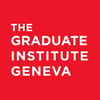
2. University of Geneva

3. University of Zurich
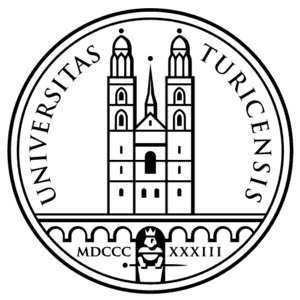
4. University of Fribourg

5. University of Lausanne
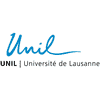
6. University of Basel
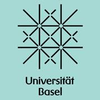
7. University of Bern
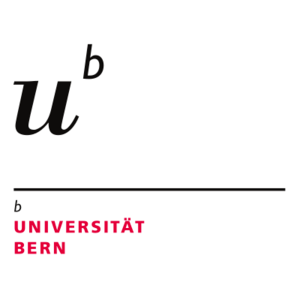
8. University of Lucerne
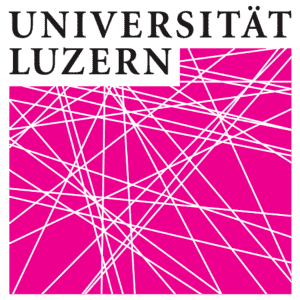
9. University of St. Gallen

10. Swiss Federal Institute of Technology Zurich

The best cities to study Human Rights Law in Switzerland based on the number of universities and their ranks are Geneva , Zurich , Fribourg , and Lausanne .
Liberal Arts & Social Sciences subfields in Switzerland
This website uses cookies to monitor anonymous usage and to help improve your online experience. Learn more . You can choose to accept all cookies, deny all cookies or customize your preference. You can change your cookie setting at anytime.
Geneva academy cookie settings
We use various third-party cookies to provide social media features and to analyze our traffic. Please use the options below to manage your cookie settings. You can change your cookie settings at any time. Please be aware, if you deny cookies, certain features of our website may not work.
This will apply to all services
Social networks
Google Analytics
Videos and media

- Our Three Master’s Programmes
- Practical Experience
- Scholarships
- Career Opportunities
- Presentation
- Core Courses
- Optional Courses
- Internships
- Moot Courts
- Extracurricular Activities
- In a Nutshell
- Testimonials
- Entry Requirements
- Tuition Fee
- How to Apply
- Regulations
- Start an Application
- Master's Paper
- In A Nutshell
- Course Catalogue
- ExMas Paper
- Duration and Key Milestones
- Distance Learning
- Short Courses
- Our Students
- Student Council
- Public Events
- Career Advice
- Language Courses
- About Geneva
- Orientation Week
- Cost of living
- Visa and Residence Permit
- Accommodation
- Health and Other Insurances
- Family Life
- Earning a Living
- Useful Links
- Training and Short Courses
- Customized Training
- Advisory Board
- Initiatives
- Lead Trainers
- Upcoming Training Courses
- Customized Training Courses
- Tracking tools
- Geneva Calendar
- Digitalization and New Technologies
- Non-State Actors
- Implementation and Accountability
- Sustainable Development
- Past projects
- Researchers
- Publications
Fellowships
- How we Work
- Annual Reports
- Our Newsletters
- Supervisory Committee
- Master’s Committee
- Direction and Management
- Swiss IHL Chair
- Villa Moynier
- International Geneva
- Military Briefings
- Human rights conversations
- GHRP Annual Conference
- Past Events

Sandra Pointet / Geneva Academy
We regularly welcome for a period of two to three months visiting fellows who can contribute to the work of the Geneva Academy while completing their post-doctorate education in a rich and stimulating academic environment.
Visiting fellows must:
- Have a PhD in a relevant discipline (e.g. public international law, international human rights law, international humanitarian law, transitional justice, international criminal law)
- Possess a Swiss passport or residency permit or possess an EU passport or a valid Schengen visa
- Be self-funded for their period of stay
- Contribute a written product during their period at the Geneva Academy (e.g. a Research Brief on an issue of concern in international law).
Should you wish to apply for a visiting fellow position, please send your full application (the subject of research, CV, list of publications and a valid work permit for Switzerland or an EU passport) to info[at]geneva-academy.ch. Incomplete applications will not be considered.
Nous accueillons régulièrement pour une période de deux à trois mois des chercheurs invités pouvant contribuer à la recherche de l’Académie tout en complétant leur formation au stade post-doctoral dans un environnent académique riche et stimulant.
Les conditions à remplir sont les suivantes :
- Avoir obtenu un doctorat dans une des disciplines relevant de la mission de l’Académie : droit international public, droit international humanitaire, droits humains, droit pénal international et justice transitionnelle
- Détenir un titre de séjour ou passeport Suisse, ou détenir un passport de l'Union Euopéene ou un visa Schengen
- Etre financièrement auto-suffisant durant sa période de séjour à l’Académie
- Contribuer à une publication de l’Académie durant ladite période (par exemple un Research Brief).
Si vous souhaitez soumettre une candidature pour le poste de chercheur invité, veuillez envoyer votre dossier complet(subjet de recherche, CV, liste des publications, permis de travail valable pour la Suisse ou passeport de l'UE) à info[at]geneva-academy.ch . Les dossiers incomplets ne seront pas traités.

COMMENTS
We are a leading education institution in international humanitarian law, human rights and transitional justice. Our research examines issues that are under-explored, need clarification, or are unconventional, experimental or challenging. We provide training and short courses for professionals who want to deepen their expertise in a specific issue.
We offer six disciplinary PhDs: PhD in Anthropology and Sociology, PhD in International Economics, PhD in Development Economics, PhD in International History, PhD in International Law and PhD in International Relations/Political Science.
The following is an overview of 5 fully-funded PhDs in human rights. International Joint PhD Programme “Human Rights, Society, and Multi-level Governance” “Human Rights Society and Multi-level governance” is a three-year doctoral joint academic program with interdisciplinary approach.
Our PhD programme PhD in international law Designed for outstanding students with a strong commitment to international law and a proven ability to carry out independent research.
We offer a two-year master and four-year PhD in International Law, as well as a one-year professional LLM with the Executive Education Programme of the Graduate Institute. In addition, we offer specialised joint degrees with the University of Geneva: LL.M. in International Dispute Settlement; LL.M. in International Humanitarian Law and Human Rights
Students have developed and are carrying out research in areas as diverse as traditional and new security issues, diplomacy, international affairs, political economy, human rights, geopolitics, post-colonial studies.
Here are six funded Ph.D. programs in Human Rights offered each year by European universities. University of Essex, the United Kingdom – Ph.D. in Human Rights. The University of Essex is one of the most prestigious institutions in the UK when it comes to teaching Human Rights.
The best cities to study Human Rights Law in Switzerland based on the number of universities and their ranks are Geneva, Zurich, Fribourg, and Lausanne.
Have a PhD in a relevant discipline (e.g. public international law, international human rights law, international humanitarian law, transitional justice, international criminal law) Possess a Swiss passport or residency permit or possess an EU passport or a valid Schengen visa; Be self-funded for their period of stay
This innovative and intellectually challenging full-time degree in international humanitarian law and human rights focuses primarily on rules applicable to armed conflicts and their interaction, and promotes both academic excellence and independent critical thinking.